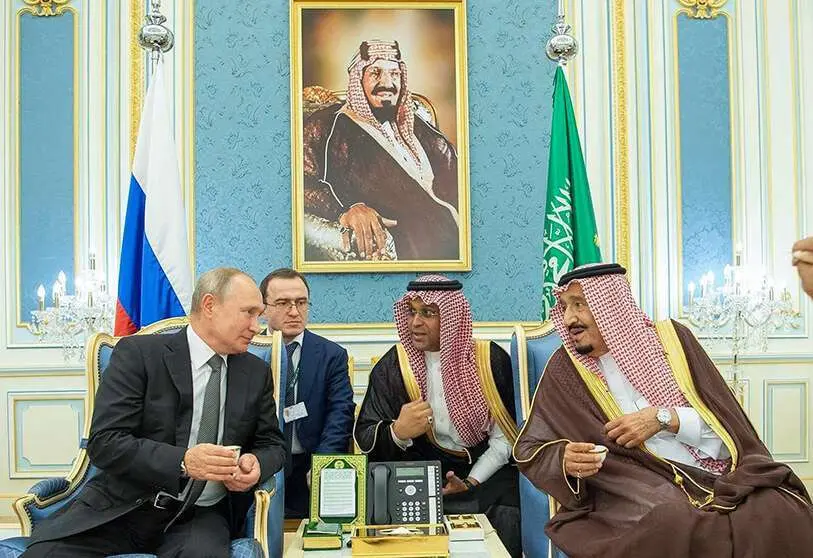King Salman and Vladimir Putin strengthen their relationship as the year ends

The week in Saudi Arabia began with an important call between King Salman and Russian President Vladimir Putin. The aim of the call was to strengthen the bilateral ties that exist between the two countries, with particular emphasis on the forthcoming G20 summit and the creation of a united front within the Organisation of Petroleum Exporting Countries (OPEC).
Russia also opened the week with good news: the Russian Ministry of Health has released the first batch of the coronavirus vaccine called Sputnik V. The latest clinical trials to verify the vaccine will end on 30 September and start marketing in early 2021. Saudi Arabia will be one of the five countries where human trials will take place; Saudi scientists have already contacted the Gamaleya Institute in Moscow to start the process.
The last quarter of the year presents several international challenges for both countries. In two months, the fifteenth G-20 Summit will take place in Riyadh. The summit will be chaired by King Salman, who has already announced the lines to be followed within the presidency of the meeting. The strategy will touch on three themes on which the meetings will be held: the empowerment of people, sustainable care of the planet and the "new form of borders", the latter referring to technological cooperation between neighbouring countries.
During the telephone conversation between the two leaders, the megaproject NEOM was also discussed. This is a city in the northwest of the Arabian Peninsula that will occupy 26 square kilometres and will operate solely on renewable energy. The idea is to create this city on the coast of the Gulf of Aqaba off the Sinai Peninsula. The most interesting novelty is that within this city the Wahhabi laws will not apply and women and men will be able to work together.
Both King Salman and President Putin have highlighted the "fruitful cooperation they share in the field of energy". These statements come after a bleak outlook for the oil markets following the coronavirus crisis. Over the last four months they have suffered historic cuts and the figures are still fluctuating unpredictably. This week Brent crude, the benchmark oil in the European market, has fallen below $42 in market trading from its best level last week of over $46.
In ten days time the OPEC committee of ministers will meet in a virtual conference to assess the current state of the world's oil markets. Saudi Arabia and Russia are already prepared for the meeting, committed to studying the strategy of cuts, compliance and compensation after these months of free fall.
September opens a busy season in energy and geopolitics. Both countries have commitments to fulfil in their respective governments, beginning with the coronavirus crisis and ending with the stabilisation of international conflicts such as those of Libya, Syria, Yemen, Qatar and Belarus-and a host of alliances that are moving away and growing closer, changing the alliance landscape as the year ends.








